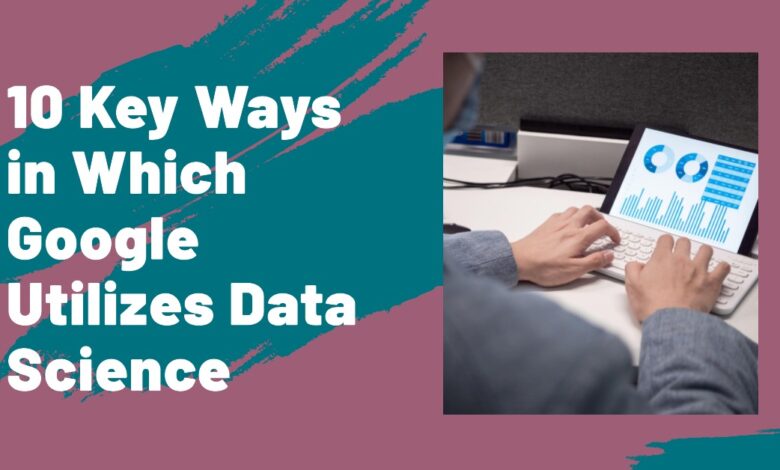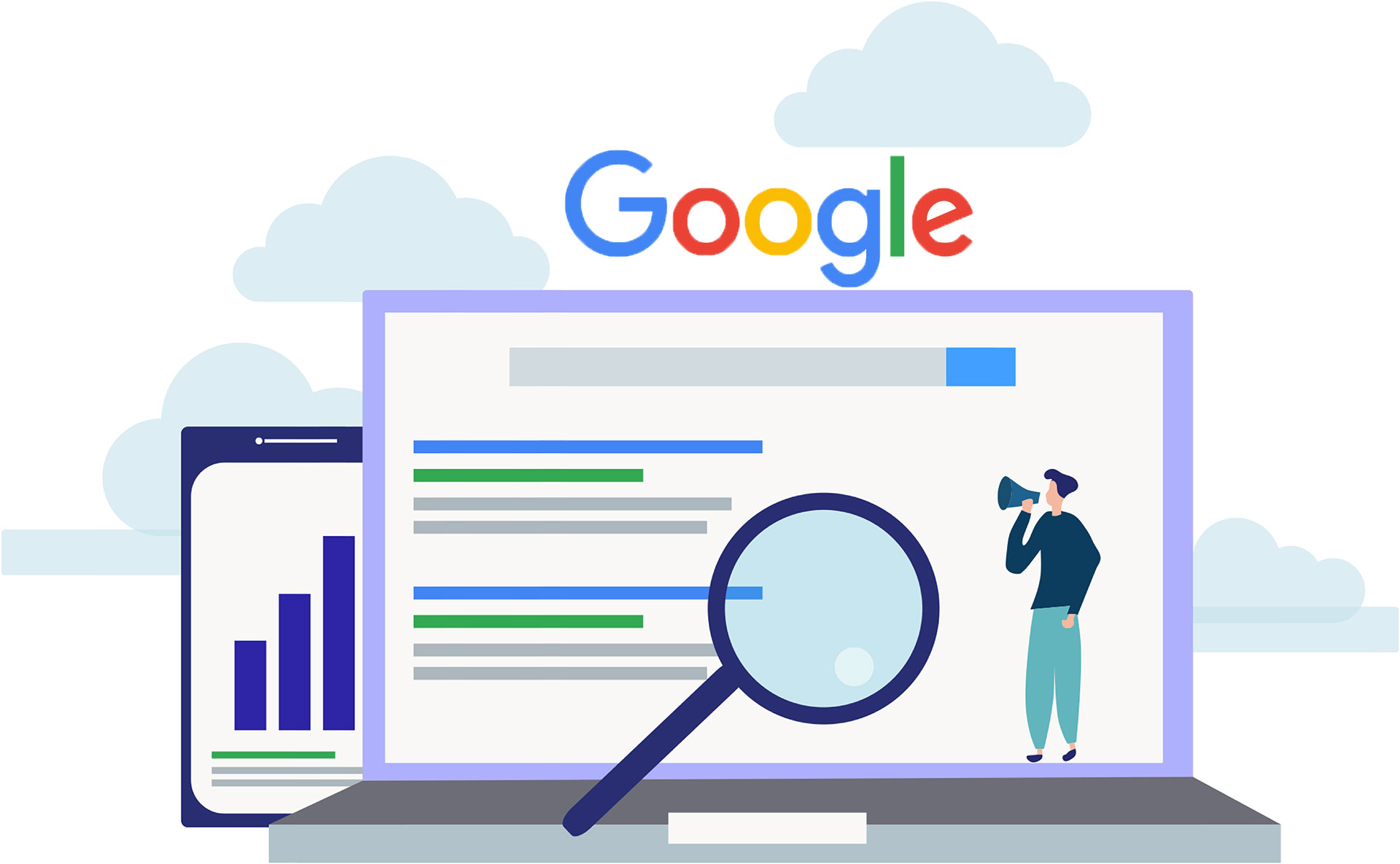
Google relies on data science as it underpins the company’s ability to innovate, optimize, and provide valuable services. With an immense amount of user-generated data at its disposal, data science enables Google to enhance its core products like search, advertising, and recommendations, delivering a more personalized and efficient experience. It’s crucial for staying competitive, improving user engagement, and tailoring its services to evolving user needs.
Data science also aids in tackling complex challenges, from security threats to environmental sustainability. By harnessing data science, Google can continuously analyze, learn from, and adapt to the vast data it generates, ensuring its services remain at the forefront of technology and user satisfaction.
Let us see what the experts of the best data science company in India have to say about this –
Search Algorithms
Google employs data science to enhance its core product, the search engine. Through machine learning and natural language processing, Google refines its search algorithms. By analysing user queries and behaviour, it constantly improves the accuracy and relevance of search results.

Data science enables Google to understand and interpret user intent, helping users find the information they seek more efficiently. This iterative process allows Google to maintain its status as the leading search engine and deliver a superior user experience by providing search results that align closely with users’ needs and preferences.
Ad Targeting
Google’s advertising platform, Google Ads, relies heavily on data science to target ads to the most relevant audiences. They analyze user behavior, demographics, and other data to serve ads that are likely to be of interest to the user. Google utilizes data science for precise ad targeting in Google Ads.

This process ensures that ads are displayed to users who are more likely to engage with the content, thereby maximizing the effectiveness of ad campaigns and increasing the chances of conversions for advertisers. Ad targeting through data science enhances user experience by displaying relevant and engaging ads, while also optimizing ad revenue for Google.
Recommendation Systems
Google employs data science in recommendation systems, such as YouTube and Google Play. These systems use machine learning to analyze user interactions and preferences. By examining a user’s viewing or listening history, as well as their interactions with content, the recommendation algorithms predict and suggest videos, music, or other content that align with the user’s interests.
This personalization enhances user engagement, keeps users on the platform longer, and increases content consumption. It also contributes to Google’s ad revenue, as it enables more precise ad targeting based on user behavior, ultimately improving the overall user experience and driving platform usage.
Maps and Navigation
Google Maps relies on data science to provide real-time navigation and location-based services. It collects data from a multitude of sources, including smartphones and GPS devices, to offer features like real-time traffic updates and optimized routes. Through data analysis and machine learning, Google Maps continuously enhances its accuracy and functionality, ensuring users receive up-to-date and efficient navigation information.
This data-driven approach not only improves the user experience but also aids in Google’s understanding of traffic patterns and contributes to its larger efforts in smart city planning and transportation optimization.
Language Translation
Google employs advanced data science techniques to power its language translation service. Through machine learning and neural networks, it analyzes vast multilingual datasets to facilitate accurate language translation. These models comprehend the context, nuances, and grammar of source text, enabling them to generate coherent and contextually relevant translations.
Constant refinement and updates based on user feedback ensure improved accuracy and fluency over time. Google Translate has become an invaluable tool for breaking down language barriers, aiding communication, and promoting global connectivity, thanks to its sophisticated data-driven language processing capabilities.
Image and Video Analysis
Google utilizes data science for image and video analysis in services like Google Photos and YouTube. This involves the use of advanced algorithms to recognize and categorize objects, scenes, and text within visual content. Data science-driven image and video analysis enable features like content moderation, improved search, and personalized recommendations.
It plays a critical role in enhancing user experience, content organization, and the overall efficiency of these platforms by making visual content more accessible and manageable.
Natural Language Processing (NLP)
Google leverages NLP to enhance its language-related services. NLP enables Google to comprehend, generate, and process human language, making it central to services like Google Assistant and improving search functionality. Using machine learning and linguistic analysis, Google can understand and respond to user queries more accurately, offer language translation services, and develop conversational interfaces for a more natural interaction with its products and services.
NLP also aids in text-based content analysis and categorization, ensuring that Google’s language-related offerings are more efficient, user-friendly, and comprehensive.
Healthcare and Life Sciences
Google has also ventured into healthcare and life sciences, utilizing data science for medical image analysis, drug discovery, and health-related research. This includes leveraging machine learning and data analytics to analyze vast medical datasets, such as medical images and patient records, for early disease detection, personalized treatment recommendations, and drug discovery.
Google’s applications in this field have the potential to revolutionize diagnostics and treatment. It gets done by improving the overall quality of healthcare and ultimately saving lives. Data-driven insights are used to assist medical professionals in making more informed decisions and to contribute to cutting-edge research in the healthcare and life sciences sectors.
Data Center Optimization
Google uses data science to optimize the energy efficiency of its massive data centers. By analyzing vast datasets, they make informed decisions about resource allocation, cooling systems, and energy consumption. This data-driven approach reduces operational costs, minimizes environmental impact, and ensures the efficient operation of Google’s infrastructure.
It involves monitoring and adjusting various parameters to improve the overall sustainability and effectiveness of their data centers, which are critical to the functioning of their services and products while aligning with Google’s environmental sustainability goals.
Security
Google employs data science for cybersecurity. It involves the analysis of vast datasets to detect and respond to potential threats and security breaches. By using machine learning and pattern recognition, Google can identify unusual activities, vulnerabilities, or malicious patterns in real-time.

This proactive approach enhances the security of its systems and user data, ultimately safeguarding Google’s services and users from cyberattacks, fraud, and unauthorized access. Data science plays a critical role in maintaining the integrity and trustworthiness of Google’s digital ecosystem.
Summarize
What we have covered so far is that data science is everywhere in Google. From operations to innovations, Google is driving its success in its various services, further added by the engineers of the best machine learning company in India. By doing this, Google is making its services more useful, efficient, and relevant for its users.



